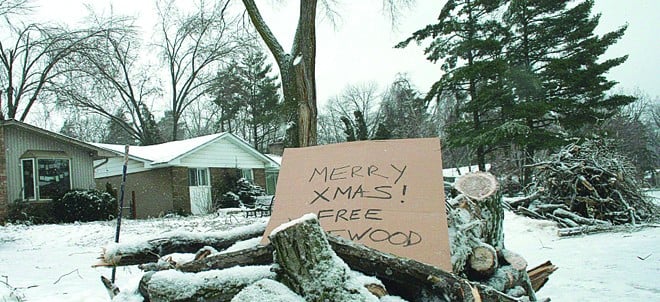

It’s 16 degrees Celsius in Islamabad and must feel very cold. Thousands of miles away, in Toronto from where I’m writing these words, it’s the same temperature, only in minus.
Having grown up in Sargodha I am as familiar to hot weather as sick children are to nightmares. I can describe heat in a hundred different ways, each more debilitating than the other. I can do that because I have had sun pour infrared lava on my skin; because I have felt the heat of hell in my body, in my brain and in my soul; because I have seen every pore in my skin open up like the mouth of a thirsty and panting Great Dane. But I can’t describe cold, this -16 cold because I can’t feel it.
I step out every few hours to have a smoke. It feels good for a few seconds as my face and hands, the only uncovered parts of my body, greet the fresh chilly air with the eagerness of a Sargodhian standing in front of an air-conditioner for the first time. Only for a few seconds. Then the coldness pierces the naked skin, seeps through layers of wool, spreads instantly, numbs the body and mind, and shuts them down. I haven’t experienced anything beyond numbness. That is why I am unable to describe extreme coldness. So let’s just say it’s as unbearable, even fatal, for the native of Toronto as a heat wave is for the native Sargodhian.
Both natives are made up of flesh, bones and the will to survive. So they find ways to live, however much inhospitable the environment is. During the summer the Sargodhian finds shelter under the tree and cools himself with a hand-fan and glass after glass of lassi and sattu. The Torontonian survives winters on technology. His home, car and place of work is artificially heated so that he is not exposed to cold except for brief periods. He could be poor, old and infirm but he has the luxury to take a hot shower, change into shorts and tees and sip a drink while watching snowfall through his double glazed window.
It’s Christmas day. A white Christmas it is; actually white and glassy. There is a thick mattress of snow laid out on flat surfaces and millions of crystals are growing on leafless trees, courtesy an ice storm that hit southern Ontario last Sunday. It was a freak and ferocious storm that dumped so much ice on trees and power lines that a good number of them came tumbling down. It disrupted the supply of energy that runs the technologies that in turn keep people warm and well. Half a million people were left without electricity, hot water, and freshly cooked food. In Toronto alone, nearly a hundred thousand people woke up today to the fourth day of power shutdown. It’s a dark, cold and gloomy Christmas for them.
Out on the streets there’s been chaos of a different kind. Traffic signals are not working. Left to their own devices the law abiding drivers are playing Dodge’m Cars in the absence of a visible manifestation of traffic law. The days leading up to Christmas are the busiest for retail businesses and service providers. They lost millions in potential custom because either the customer couldn’t reach them or they couldn’t open shop. Some of those who did open had to guide customers through isles with the help of flash lights. Phone and internet services were disrupted and so card processing machines and ATMs remained down, reducing the buying power of even the well-off to the meagre cash in their pockets. Trains and buses are limping back to normalcy but routine service couldn’t be restored till Christmas eve.
There are whole streets in the affected communities that have been deserted by the residents. Those who couldn’t leave have had to light up their houses with candles and make do with restaurant food. At least two deaths have been reported -- those of a mother and her child -- due to the emissions from a generator running in the garage.
There are also stories of courage and compassion, like this man who used his car battery to power his household appliances using an inverter that he carried to a friend’s home to open her electronically controlled garage door. Or the hundreds of workers who came from surrounding cities, left their families behind and worked through tough situations, so affected families may have a chance to celebrate Christmas with their families.
Everyone did whatever they had to do to survive and to help others survive. Just like people did after the earthquake and the mega floods in Pakistan. People are good. They mop up the mess created by nature and powerful governments and businesses, whatever the colour of their skin and their passport. Nature just keeps providing a reason to make our celebrations purposeful and therefore more fun.